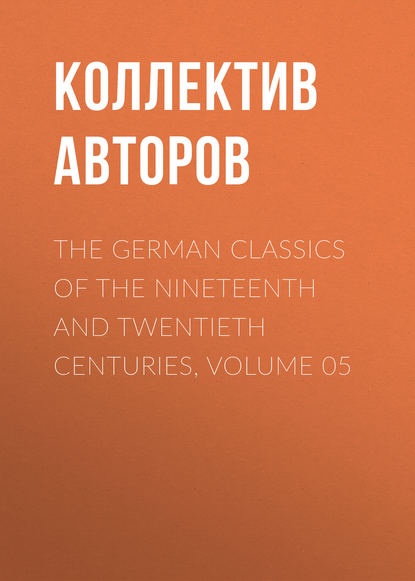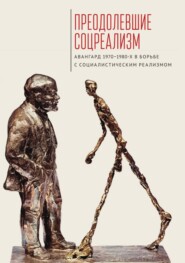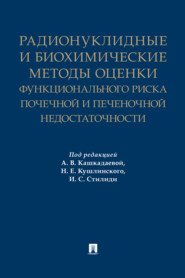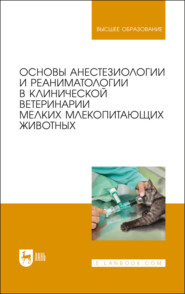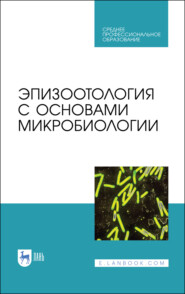По всем вопросам обращайтесь на: info@litportal.ru
(©) 2003-2024.
✖
The German Classics of the Nineteenth and Twentieth Centuries, Volume 05
Настройки чтения
Размер шрифта
Высота строк
Поля
Zacharias Werner (1768-1823), after a life of wild sensual excesses, finally found refuge in the Roman Church and as a popular and sensational preacher aroused Vienna with drastic sermons and clownish antics. Of his various plays, The Sons of the Valley (1803) and the Cross on the Baltic (1806) deserve mention for their religious and mystic subject-matter, for which Werner himself has attempted an explanation, though without adding to their understanding. Martin Luther, or the Consecration of Power (1807) is a pageant play of great interest. Its recantation, The Power of Weakness, was written after Werner's conversion. More important than these is his so-called "fate tragedy," The 24th of February (1810 per formed in Weimar; published 1815). This day was a day of terror to Werner, for on it he lost in the same year his mother and his most intimate friend. He therefore in the play invests the day with a fatal significance, and on it a malignant fate has especial power over the fortunes of the persons of the drama; there is also a fatal requisite and a general atmosphere of fatalism. The play started a whole series; some of these were crude and weak imitations, others, like Grillparzer's The Ancestress, were of great power. These plays were conditioned by something in the air. Perhaps Napoleon, the man of fate, ruling the minds and destinies of a whole continent, had something to do with the philosophical background. Werner caught the fatalistic spirit, gave it concise and logical form, and succeeded in producing a play which has both atmosphere and logic of development. In all of these plays, in so far as they are good, the effect is produced by the recognition scenes which hold the reader rapt to the end. But the weak and vulgar imitations of the category outnumbered the powerful plays in the genre, and the well-merited death-blow was given them by Platen's The Fateful Fork (1826).
E.T.A. Hoffmann (1776-1822) was a thoroughly Romantic person. Like his fellow-Königsberger, Werner, he went through a period of wildest dissipation, and all his life was easily influenced by alcohol. He was a painter, a writer, and a musician. His ability in the pictorial arts was mainly in caricature and his career as a composer is typically Romantic; though he never but once completed a composition, that he started, he was thoroughly at home in the theory of the art. Like all Romanticists, Hoffmann was interested in and tried all phases of life and refused to recognize the boundaries between the various parts of existence, between the arts, and between reality and unreality. Hoffmann, with all his North German power of reasoning and his zeal and conscientiousness in public office, was emphatically that Romanticist associated with the night-sides of literature and life. There is something uncanny both in the man and his writings. His power of putting the scene of his most unreal stories in the midst of well-known places, his ability to shift the reader from the real to the unreal and vice versa, make some of his stories seem like phantasmagorias.
In all of Hoffmann's stories there is some unpleasant, bizarre character; this is the author's satire on his own strange personality. There is none of Poe's objectivity in Hoffmann, but he uses his subjectivity in a peculiarly Romantic fashion. It is his idea to raise the reader above the every-day point of view, to flee from this to a magic world where the unusual shall take the place of the real and where wonder shall rule. So there are in Hoffmann's stories a series of characters who are really doubles. To the uninitiated they seem every-day creatures; to those who know, they are fairies or beings from the supernatural world. Such characters are found at their best in The Golden Pot.
Hoffmann has influenced both French and English literatures more than any other Romantic poet. Hawthorne and Poe read him, and he was felt by the French to be one of the first Germans whom they understood. It was not merely that his clear reason appealed to the French, but that they saw in him one endowed as with a sixth sense. He has a fineness of observation, especially for the ridiculous sides of humanity, together with a tenderness of spirit, that was new in German literature as such men as Sainte-Beuve and Gautier saw it. The soul at war with itself, uncovering its most secret thoughts, the "malheur d'être poète," coupled with wit, taste, gaiety, and the comedy spirit—all these the French found in Hoffmann as in no other German. Poe was also influenced by Hoffmann, but Poe's whole world is the supernatural, and where Hoffmann slips with fantastic but logical changes from the real to the unreal, Poe's metempsychosis is the real in his world and he has a deeper insight into the world of terror. The difference between Hawthorne and Hoffmann is even more striking, for in the American the supernatural is the embodiment of the Puritan New England conscience. In Hoffmann there is no such elevation of the moral world to the rank of an atmosphere.
In Hoffmann there is no out-of-doors, no lyric love; some of his characters are frankly insane. The musical takes on a supreme significance among the sensations, and music seemed the only art which was able to draw the soul of the man from his earth-bound habitation. Only in music did Hoffmann find the ability to make the Romantic escape from the homelessness of this existence to the all-embracing world of the unreal. But too often in his works does the unreal fail to satisfy the reader. There is an effort felt, an effect sought for, and, while the amalgamation of the two worlds is perfect, the world to which Hoffmann is able to take us proves to be without the cogency which our imaginations expect. Here Hoffmann fails. His world of the imagination cannot always be taken seriously.
Count August von Platen-Hallermund (1796-1835) is characterized by the eternal Romantic homelessness; at every turn of his career this impresses one. Of ancient noble Franconian stock, he felt himself a foreigner in Bavaria which had acquired Franconia in the Napoleonic period. In his early life in the military academy at Munich he was never thoroughly at home, for his was not a military spirit and he was unable to follow his literary tastes. When finally he was enabled to study at Würzburg and Erlangen, even the friendship of Schelling could not compensate for the late beginning of a university career which was filled with the study of modern European and Oriental languages but which had the bitterest personal disappointments. Even in Italy, the land of every German poet's dreams, Platen never felt himself at home, and the pictures of him from his Italian life are of a tragic, lonesome figure. The discord between body and soul, that homelessness in one's own physical body which characterized Hoffmann and made him seem diabolical to so many, is also to be noted in Platen. Carried over to the moral world, it accounts for his ardent cultivation of friendship rather than love, and frees him from the bitter accusations of Heine, whose attack in The Baths of Lucca is one of the most scurrilous and venomous pasquils in all literary history. Finally, in the esthetic world, Platen seems largely un-German. His esthetics were of the Classical and Renaissance times; in an age of the breaking down of conventions and of literary revolutions, Platen held himself rigidly aristocratic; he clung to a canon of beauty in an age which was giving birth to realism.
Platen's poetry falls into two periods—the early German tentative period and the later or foreign period, the poems of which were mostly written in Italy and in imitation of, or adapted from, foreign metres. Platen is always represented as a master of form, and, since Jacob Grimm's characterization of him, has been accused of "marble coldness." That Platen handled difficult metres with virtuosity is not to be laid against him; it is to the advantage of German verse that such poems as his ghasels made indigenous, in part, the feeling for mere beauty in verse. German poets have too often gone the road of mere formlessness. Platen cultivated style, polished and revised his lines with as great care as did his arch-enemy Heine, and it is only a confession of lack of ear to refuse him the name of poet. No one who reads his Polish Songs can help feeling that they are the products of fire and inspiration.
It must be confessed, however, that there is in Platen a remarkable lack of inner experience. He went through life without ever having been shaken to the depths of his nature and was, unfortunately, not of so Olympian a calmness that, like Goethe, he could present the world in plastic repose and sublimity. With all his refinement and fervor he has left but few poems of lasting interest, and of these The Grave in the Busento is perhaps the best.
LUDWIG ACHIM VON ARNIM AND CLEMENS BRENTANO
* * * * *
THE BOY'S MAGIC HORN[7 - Selections translated by Margarete Münsterberg.] (1806)
WERE I A LITTLE BIRD
Were I a little bird,
And had two little wings,
I'd fly to thee;
But I must stay, because
That cannot be.
Though I be far from thee,
In sleep I dwell with thee,
Thy voice I hear.
But when I wake again,
Then all is drear.
Each nightly hour my heart
With thoughts of thee will start
When I'm alone;
For thou 'st a thousand times
Pledged me thine own.
* * * * *
THE MOUNTAINEER
Oh, would I were a falcon wild,
I should spread my wings and soar;
Then I should come a-swooping down
By a wealthy burgher's door.
In his house there dwells a maiden,
She is called fair Magdalene,
And a fairer brown-eyed damsel
All my days I have not seen.
On a Monday morning early,
Monday morning, they relate,
Magdalene was seen a-walking
Through the city's northern gate.
Then the maidens said: "Thy pardon—
Magdalene, where wouldst thou go?"
"Oh, into my father's garden,
Where I went the night, you know."
And when she to the garden came,
And straight into the garden ran,
There lay beneath the linden-tree
Asleep, a young and comely man.
"Wake up, young man, be stirring,
Oh rise, for time is dear,
I hear the keys a-rattling,
And mother will be here."
"Hearst thou her keys a-rattling,
And thy mother must be nigh,
Then o'er the heath this minute
Oh come with me, and fly!"
And as they wandered o'er the heath,
There for these twain was spread,
A shady linden-tree beneath,
A silken bridal-bed.
And three half hours together,
They lay upon the bed.
"Turn round, turn round, brown maiden;
Give me thy lips so red!"
"Thou sayst so much of turning round,
But naught of wedded troth,
I fear me I have slept away
My faith and honor both."
"And fearest thou, thou hast slept away
Thy faith and honor too,
I say I'll wed thee yet, my dear,
So thou shalt never rue."
E.T.A. Hoffmann (1776-1822) was a thoroughly Romantic person. Like his fellow-Königsberger, Werner, he went through a period of wildest dissipation, and all his life was easily influenced by alcohol. He was a painter, a writer, and a musician. His ability in the pictorial arts was mainly in caricature and his career as a composer is typically Romantic; though he never but once completed a composition, that he started, he was thoroughly at home in the theory of the art. Like all Romanticists, Hoffmann was interested in and tried all phases of life and refused to recognize the boundaries between the various parts of existence, between the arts, and between reality and unreality. Hoffmann, with all his North German power of reasoning and his zeal and conscientiousness in public office, was emphatically that Romanticist associated with the night-sides of literature and life. There is something uncanny both in the man and his writings. His power of putting the scene of his most unreal stories in the midst of well-known places, his ability to shift the reader from the real to the unreal and vice versa, make some of his stories seem like phantasmagorias.
In all of Hoffmann's stories there is some unpleasant, bizarre character; this is the author's satire on his own strange personality. There is none of Poe's objectivity in Hoffmann, but he uses his subjectivity in a peculiarly Romantic fashion. It is his idea to raise the reader above the every-day point of view, to flee from this to a magic world where the unusual shall take the place of the real and where wonder shall rule. So there are in Hoffmann's stories a series of characters who are really doubles. To the uninitiated they seem every-day creatures; to those who know, they are fairies or beings from the supernatural world. Such characters are found at their best in The Golden Pot.
Hoffmann has influenced both French and English literatures more than any other Romantic poet. Hawthorne and Poe read him, and he was felt by the French to be one of the first Germans whom they understood. It was not merely that his clear reason appealed to the French, but that they saw in him one endowed as with a sixth sense. He has a fineness of observation, especially for the ridiculous sides of humanity, together with a tenderness of spirit, that was new in German literature as such men as Sainte-Beuve and Gautier saw it. The soul at war with itself, uncovering its most secret thoughts, the "malheur d'être poète," coupled with wit, taste, gaiety, and the comedy spirit—all these the French found in Hoffmann as in no other German. Poe was also influenced by Hoffmann, but Poe's whole world is the supernatural, and where Hoffmann slips with fantastic but logical changes from the real to the unreal, Poe's metempsychosis is the real in his world and he has a deeper insight into the world of terror. The difference between Hawthorne and Hoffmann is even more striking, for in the American the supernatural is the embodiment of the Puritan New England conscience. In Hoffmann there is no such elevation of the moral world to the rank of an atmosphere.
In Hoffmann there is no out-of-doors, no lyric love; some of his characters are frankly insane. The musical takes on a supreme significance among the sensations, and music seemed the only art which was able to draw the soul of the man from his earth-bound habitation. Only in music did Hoffmann find the ability to make the Romantic escape from the homelessness of this existence to the all-embracing world of the unreal. But too often in his works does the unreal fail to satisfy the reader. There is an effort felt, an effect sought for, and, while the amalgamation of the two worlds is perfect, the world to which Hoffmann is able to take us proves to be without the cogency which our imaginations expect. Here Hoffmann fails. His world of the imagination cannot always be taken seriously.
Count August von Platen-Hallermund (1796-1835) is characterized by the eternal Romantic homelessness; at every turn of his career this impresses one. Of ancient noble Franconian stock, he felt himself a foreigner in Bavaria which had acquired Franconia in the Napoleonic period. In his early life in the military academy at Munich he was never thoroughly at home, for his was not a military spirit and he was unable to follow his literary tastes. When finally he was enabled to study at Würzburg and Erlangen, even the friendship of Schelling could not compensate for the late beginning of a university career which was filled with the study of modern European and Oriental languages but which had the bitterest personal disappointments. Even in Italy, the land of every German poet's dreams, Platen never felt himself at home, and the pictures of him from his Italian life are of a tragic, lonesome figure. The discord between body and soul, that homelessness in one's own physical body which characterized Hoffmann and made him seem diabolical to so many, is also to be noted in Platen. Carried over to the moral world, it accounts for his ardent cultivation of friendship rather than love, and frees him from the bitter accusations of Heine, whose attack in The Baths of Lucca is one of the most scurrilous and venomous pasquils in all literary history. Finally, in the esthetic world, Platen seems largely un-German. His esthetics were of the Classical and Renaissance times; in an age of the breaking down of conventions and of literary revolutions, Platen held himself rigidly aristocratic; he clung to a canon of beauty in an age which was giving birth to realism.
Platen's poetry falls into two periods—the early German tentative period and the later or foreign period, the poems of which were mostly written in Italy and in imitation of, or adapted from, foreign metres. Platen is always represented as a master of form, and, since Jacob Grimm's characterization of him, has been accused of "marble coldness." That Platen handled difficult metres with virtuosity is not to be laid against him; it is to the advantage of German verse that such poems as his ghasels made indigenous, in part, the feeling for mere beauty in verse. German poets have too often gone the road of mere formlessness. Platen cultivated style, polished and revised his lines with as great care as did his arch-enemy Heine, and it is only a confession of lack of ear to refuse him the name of poet. No one who reads his Polish Songs can help feeling that they are the products of fire and inspiration.
It must be confessed, however, that there is in Platen a remarkable lack of inner experience. He went through life without ever having been shaken to the depths of his nature and was, unfortunately, not of so Olympian a calmness that, like Goethe, he could present the world in plastic repose and sublimity. With all his refinement and fervor he has left but few poems of lasting interest, and of these The Grave in the Busento is perhaps the best.
LUDWIG ACHIM VON ARNIM AND CLEMENS BRENTANO
* * * * *
THE BOY'S MAGIC HORN[7 - Selections translated by Margarete Münsterberg.] (1806)
WERE I A LITTLE BIRD
Were I a little bird,
And had two little wings,
I'd fly to thee;
But I must stay, because
That cannot be.
Though I be far from thee,
In sleep I dwell with thee,
Thy voice I hear.
But when I wake again,
Then all is drear.
Each nightly hour my heart
With thoughts of thee will start
When I'm alone;
For thou 'st a thousand times
Pledged me thine own.
* * * * *
THE MOUNTAINEER
Oh, would I were a falcon wild,
I should spread my wings and soar;
Then I should come a-swooping down
By a wealthy burgher's door.
In his house there dwells a maiden,
She is called fair Magdalene,
And a fairer brown-eyed damsel
All my days I have not seen.
On a Monday morning early,
Monday morning, they relate,
Magdalene was seen a-walking
Through the city's northern gate.
Then the maidens said: "Thy pardon—
Magdalene, where wouldst thou go?"
"Oh, into my father's garden,
Where I went the night, you know."
And when she to the garden came,
And straight into the garden ran,
There lay beneath the linden-tree
Asleep, a young and comely man.
"Wake up, young man, be stirring,
Oh rise, for time is dear,
I hear the keys a-rattling,
And mother will be here."
"Hearst thou her keys a-rattling,
And thy mother must be nigh,
Then o'er the heath this minute
Oh come with me, and fly!"
And as they wandered o'er the heath,
There for these twain was spread,
A shady linden-tree beneath,
A silken bridal-bed.
And three half hours together,
They lay upon the bed.
"Turn round, turn round, brown maiden;
Give me thy lips so red!"
"Thou sayst so much of turning round,
But naught of wedded troth,
I fear me I have slept away
My faith and honor both."
"And fearest thou, thou hast slept away
Thy faith and honor too,
I say I'll wed thee yet, my dear,
So thou shalt never rue."





